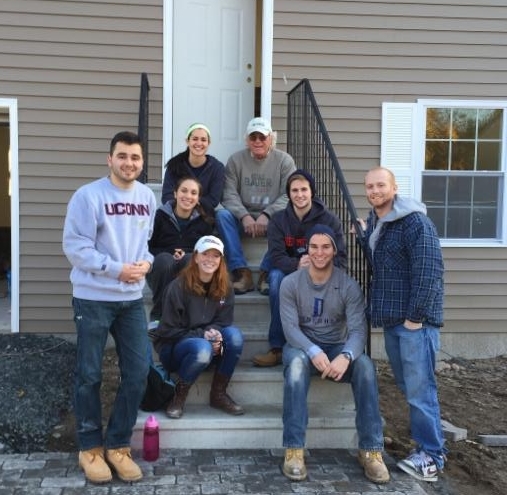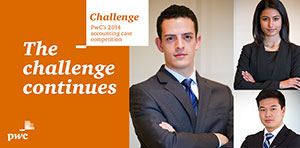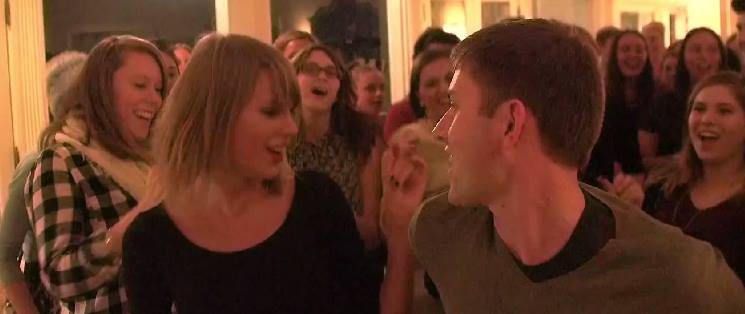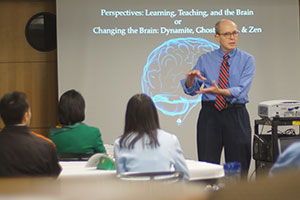How many student interns can say they attended a speech by President Obama, met several Cabinet Secretaries, and watched the Marine One helicopter land on the South Lawn of the White House?
David Rifkin, a UConn senior majoring in Business Management, has done all three, while spending this semester as a White House Intern, conducting research and writing reports for government officials.
Simultaneously, Rifkin is researching leadership styles of early presidents, as well as more recent administrations, as part of an independent research project. He plans to present his findings when he returns to campus in the spring semester.
“It is incredible to walk through the White House gates every morning on the way to work,” said the Glastonbury native. “It is truly inspirational to consider that I am working at the very same place as some of the greatest leaders in American history.
“The thrill has not remotely begun to wear off,” said Rifkin, who is also a member of the UConn Honors program. “I still feel the same magic that I did on the very first day.”
Rifkin is no stranger to public service. Last year, he interned for U.S. Senator Richard Blumenthal, and also at the international human rights organization Lawyers Without Borders. He has also been active in student government at UConn.
“I thought that an internship at the White House would take my government and public service interests to the highest level,” he said. “My experience as a White House Intern is incredible. To say I’m enjoying myself would be an understatement. The work is quite demanding, but no work I have ever done has been so rewarding.
“On a more personal level, I hope my White House Internship will give me insight into what career path I want to pursue professionally,” he said. “I also hope to further develop my leadership and professional skills, to prepare myself for future personal and career endeavors.”
Rifkin’s research project is under the supervision of Management Professor Zeki Simsek, who describes Rifkin as focused, engaged, mature, observant, reflective and professional.
“I suspect that he will uncover some intriguing contrasts, as well as commonalities among the U.S. presidents in terms of leadership variables, such as openness to new information, belief systems, interpersonal styles, motivation and more,” Simsek said. He has asked Rifkin to explore whether presidents tend to display a dominant leadership style or a multifaceted one, and whether their styles shape their job performance.
Although Rifkin isn’t yet ready to reveal what he’s learned, he looks forward to presenting his findings upon his return.
“I intend for my research to be of value to all those interested in what constitutes effective leadership,” he said. “I aim to become better informed, through my exploration, of what factors contribute to successful management style at the highest level, in a way that can be generalized to leadership positions in all areas from business to government.”
Rifkin said his UConn experiences, both academically and in student government, helped prepare him for his internship.
Asked whether it will be hard to go back to being a student again, Rifkin said no.
“Although a White House Internship is a once-in-a-lifetime experience, I certainly miss college at the same time,” he said. “I think the skills gained from this internship will actually enhance my future academic experience. I don’t want this internship to end, but I look forward to being back with my college friends, attending classes, and, of course, watching UConn Basketball.”





 Upon getting home, I posted a Polaroid picture of Taylor and myself from the night on my social media accounts, and even my close friends were quick to dismiss it as photoshopped. The next morning, I woke up to find Taylor, herself, had Tweeted and Instagrammed our photo, validating the entire experience and essentially bringing my social media project full-circle.
Upon getting home, I posted a Polaroid picture of Taylor and myself from the night on my social media accounts, and even my close friends were quick to dismiss it as photoshopped. The next morning, I woke up to find Taylor, herself, had Tweeted and Instagrammed our photo, validating the entire experience and essentially bringing my social media project full-circle.
